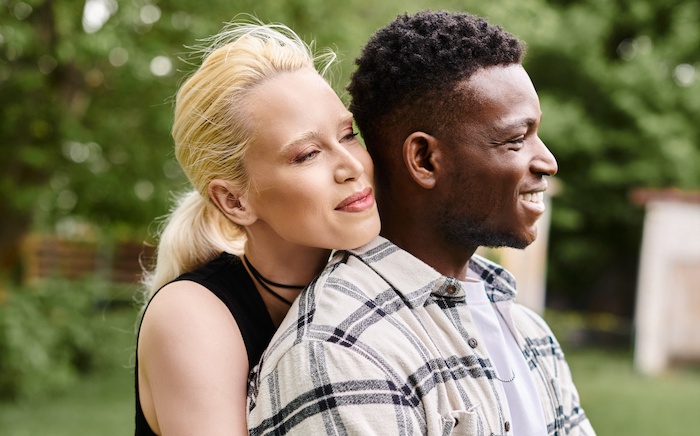
In any interracial relationship, conversations about race are inevitable. While these discussions can be challenging, they're also essential for building understanding, trust, and intimacy. Avoiding them can create distance and misunderstanding, while approaching them with care can strengthen your bond.
As a relationship counselor specializing in interracial couples, I've seen how effective communication about race can transform relationships. This guide will help you navigate these important conversations with confidence and compassion.
Why Race Conversations Matter in Interracial Relationships
Open dialogue about race serves several crucial functions in interracial relationships:
- Builds understanding: Helps partners understand each other's experiences and perspectives
- Prevents resentment: Addresses issues before they become sources of conflict
- Creates intimacy: Sharing vulnerable experiences builds emotional connection
- Prepares for challenges: Equips couples to handle external pressures and discrimination
- Fosters growth: Encourages personal and relational development
Creating a Safe Space for Racial Dialogue
Before diving into specific conversations, it's essential to establish ground rules that create psychological safety:
Creating Conversation Safety
- Choose a calm, private setting without distractions
- Set aside dedicated time when you're both rested and focused
- Agree that both perspectives are valid and worth hearing
- Commit to listening without interrupting or becoming defensive
- Use "I feel" statements rather than accusations
Common Race-Related Conversation Topics
These are some of the most important racial topics that arise in interracial relationships:
1. Personal Experiences with Racism
Sharing your individual experiences with racial discrimination, microaggressions, and privilege.
Conversation Starter
2. Family Attitudes and Expectations
Discussing how your families view your relationship and any racial biases they may hold.
3. Navigating Public Spaces
Addressing how you handle stares, comments, or discrimination when you're out together.
4. Cultural Differences and Traditions
Exploring how your racial and cultural backgrounds influence your values, traditions, and expectations.
5. Future Planning
Discussing how race might impact decisions about marriage, children, and where to live.
Effective Communication Strategies
How you communicate about race is as important as what you communicate. These strategies can help:
Do
- Listen actively and empathetically
- Validate your partner's feelings and experiences
- Ask clarifying questions to ensure understanding
- Take breaks if emotions become overwhelming
- Express appreciation for your partner's vulnerability
Don't
- Dismiss or minimize your partner's experiences
- Become defensive or make counter-accusations
- Assume you understand your partner's perspective
- Use absolute language like "you always" or "you never"
- Expect immediate resolution of complex issues
Navigating Common Challenges
Even with the best intentions, race conversations can be difficult. Here's how to handle common challenges:
When One Partner Becomes Defensive
Defensiveness often stems from feeling attacked or misunderstood. If your partner becomes defensive:
- Pause the conversation and acknowledge the tension
- Reassure them of your care and respect
- Clarify your intentions - you're sharing, not accusing
- Consider taking a break and returning to the topic later
When There's a Significant Knowledge Gap
If one partner has much more knowledge or experience with racial issues:
Bridging the Knowledge Gap
For the more experienced partner: Be patient and educational rather than critical. Share resources and experiences that can help your partner understand.
For the less experienced partner: Approach with humility and curiosity. Acknowledge what you don't know and commit to learning.
When Conversations Trigger Strong Emotions
Race discussions can evoke powerful emotions. If emotions become overwhelming:
- Name the emotion: "I'm feeling really overwhelmed right now"
- Request a pause: "Can we take a 10-minute break and come back to this?"
- Use calming techniques: Deep breathing, walking, or mindfulness
- Reconnect physically: Hold hands or hug if both partners are comfortable
Specific Conversation Starters
If you're unsure how to begin a conversation about race, these starters can help:
Conversation Starters About Race
Repairing After Difficult Conversations
Even with the best intentions, race conversations can sometimes go poorly. Repair is essential:
- Take responsibility: Apologize for any hurtful words or tone
- Reconnect: Spend positive time together to rebuild connection
- Reflect: Consider what you learned and how to improve future conversations
- Recommit: Affirm your commitment to each other and to continuing these important discussions
When to Seek Professional Help
Some race-related issues benefit from professional guidance. Consider counseling if:
- Conversations consistently escalate into arguments
- One or both partners avoid all race-related discussions
- Racial issues are causing significant relationship distress
- You're dealing with complex family dynamics around race
- You're preparing for major decisions like marriage or children
Finding the Right Counselor
Look for a therapist with experience in interracial relationships and cultural competence. Many therapists now offer specific expertise in navigating racial dynamics in relationships.
Growing Through Difficult Conversations
While conversations about race can be challenging, they also offer tremendous opportunities for growth:
- Personal growth: Developing greater self-awareness and understanding of racial dynamics
- Relationship growth: Building deeper intimacy through vulnerability and shared understanding
- Cultural growth: Expanding your worldview and appreciation for different experiences
- Social growth: Becoming better equipped to navigate racial issues in broader society
Final Thoughts
Having difficult conversations about race is an essential part of any thriving interracial relationship. While these discussions can feel uncomfortable, they're the pathway to deeper understanding, stronger connection, and a more resilient partnership.
Remember that these conversations are a journey, not a destination. You won't resolve all racial issues in one discussion, but each conversation builds your capacity for future dialogue. Approach them with patience, compassion, and a genuine desire to understand your partner's experience.
Your willingness to engage in these difficult conversations demonstrates your commitment to each other and to building a relationship that acknowledges and celebrates all aspects of who you are—including your racial identities.
